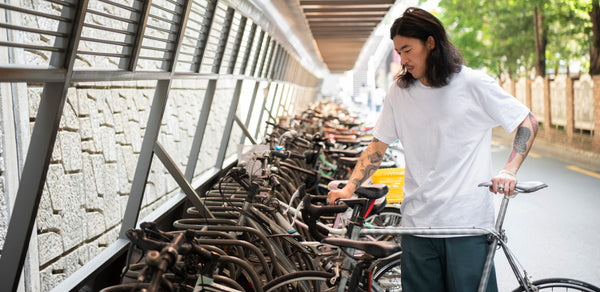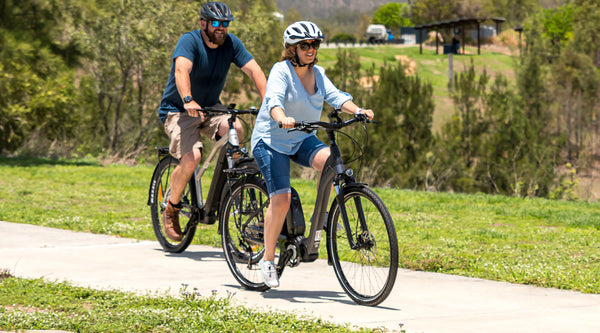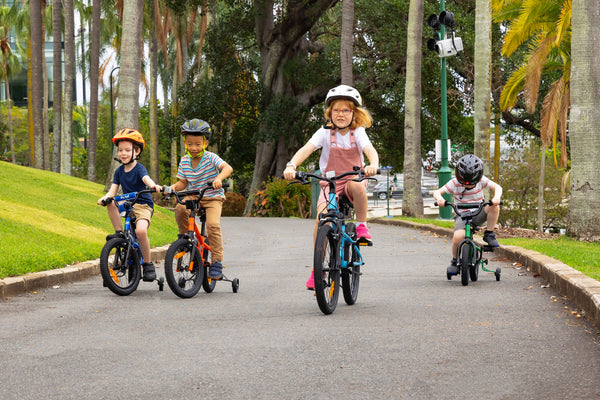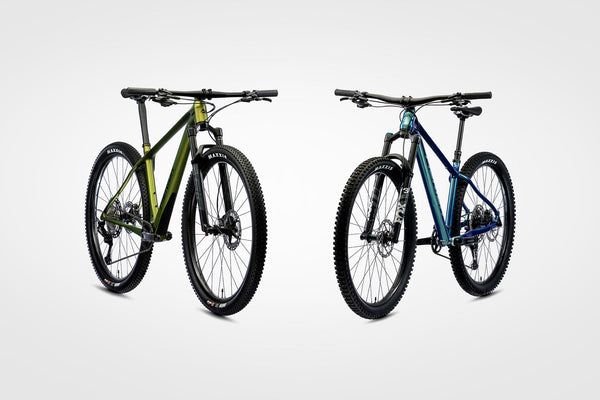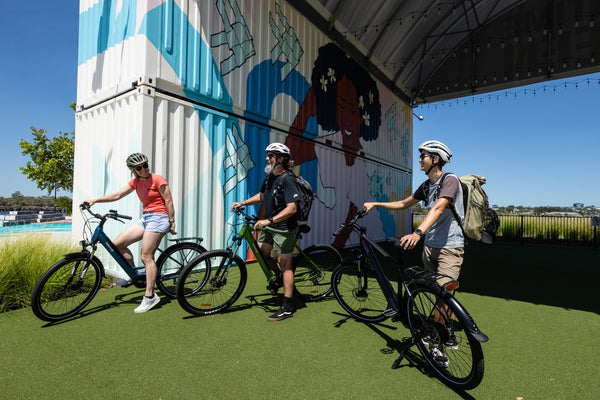Lock it or you might Lose it! - How to choose the right Bike Lock
Choosing the right bike lock is crucial for keeping your bike safe, whether you're locking it up at home, at work, or while running errands. A good lock not only deters thieves but also gives you peace of mind knowing your bike is secure when left unattended.
However, not all bike locks offer the same level of security or convenience. The type of lock you choose should depend on your bike, how often you ride, and where you typically leave it. In this guide, we'll break down the different types of locks available at 99 Bikes and help you find the best one for your specific needs, whether you have a lightweight road bike, a sturdy commuter, or an expensive electric bike. By the end, you'll know which lock will offer the ideal balance of protection and practicality for your cycling lifestyle!
Security for low risk situations
Cable Locks
If you're making a quick stop at the shops, a cable lock could be the ideal choice for you. Available in various lengths and thicknesses, the smaller, lighter options can often be fastened to your bike frame for easy transport, similar to folding locks. While cable locks don’t offer the highest level of security, they’re convenient and easy to use, perfect for casual riders or those not locking up a high-end, $12,000 e-bike.
Thicker cable locks provide more security than their slimmer counterparts but are generally too bulky to attach to your bike while riding. They strike a balance between portability and protection, making them a solid choice for riders who need more security than a basic cable but prefer something more compact than a U-lock. If you're not leaving your bike out all day, this could be a practical option.
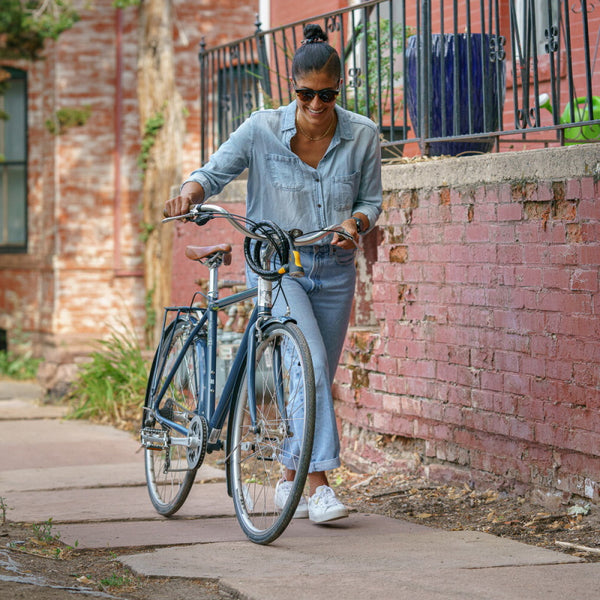
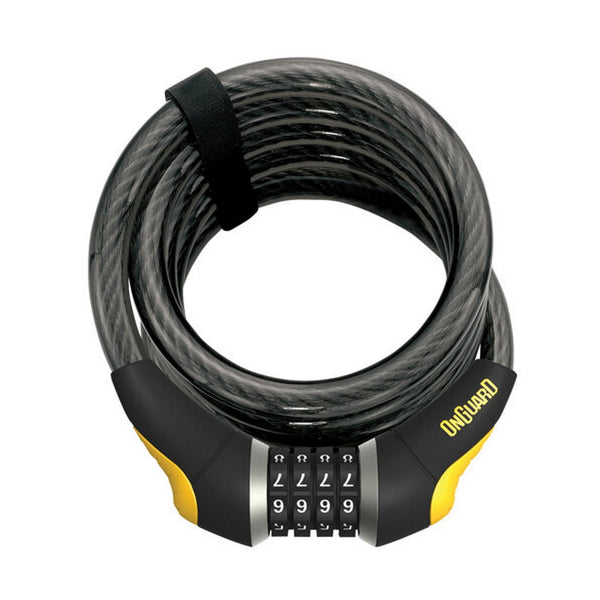
Security for medium risk situations
Folding Locks
Folding locks offer a solid combination of security, durability, and portability. Unlike bulkier locks that can weigh down your backpack, folding locks are designed to be compact and typically mount directly to your bike’s bottle cage holder for easy transport.
When needed, the lock unfolds into a sturdy steel structure, allowing you to secure your bike frame to a fixed object with ease. While folding locks may not provide the same level of security as heavy-duty options like U-locks, they’re highly practical for riders who value space and convenience. This makes them an excellent choice for commuters who need a compact, easy-to-carry lock for moderate security when parking for longer periods.
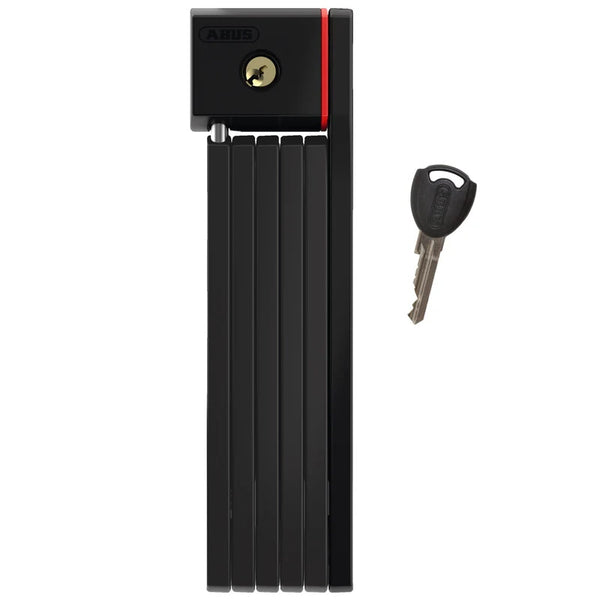
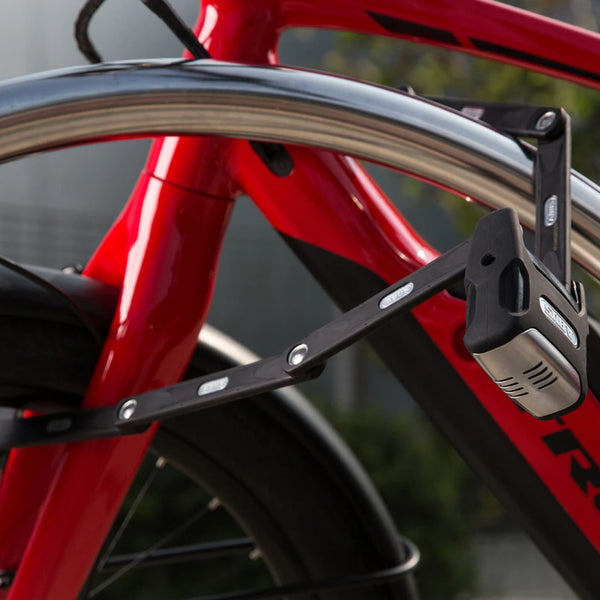
Security for high risk situations
Chain Locks
If security is your top priority, a chain lock is the way to go. Though it may not be the most portable or compact option, a heavy-duty chain lock offers unmatched strength and durability, making it a formidable deterrent in high-theft areas. The design also allows for securing a bike to more awkward objects and is a little more versatile than a U-Lock due to it’s design.
Due to their weight, chain locks are best suited for securing your bike in one location for extended periods, like at home or outside your office. If you’re parking your bike all day and don’t mind the extra bulk, this lock is ideal. It’s especially perfect for situations where theft risk is high and mobility isn’t a primary concern.
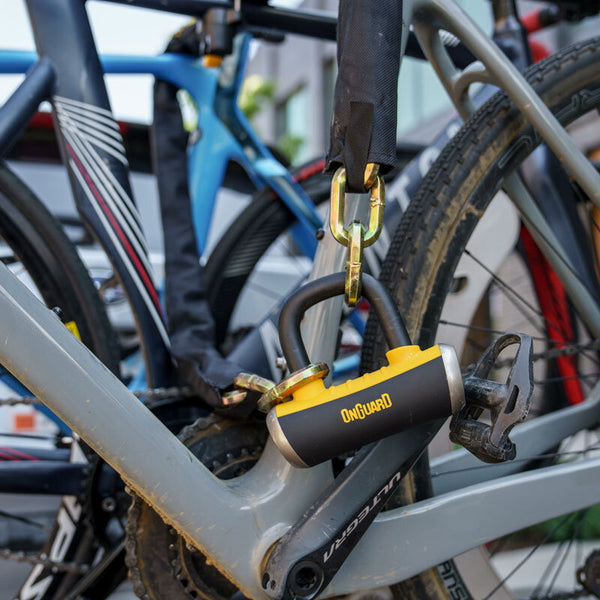
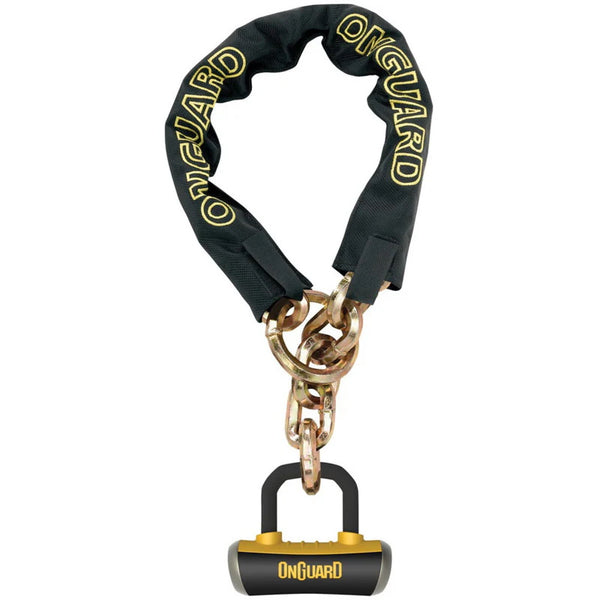
U-Locks & D-Locks
A U-Lock, also called a D-Lock, is one of the most secure options available to protect your bike. Its thick, sturdy construction makes it extremely difficult to cut, serving as a powerful deterrent to even the most determined thieves.
Although it’s not as compact as some other locks, a U-Lock offers exceptional security without adding excessive weight to your backpack. If you have a bike that you really can’t afford to lose or need to leave it unattended for an extended period, this lock is a top choice for ensuring peace of mind.
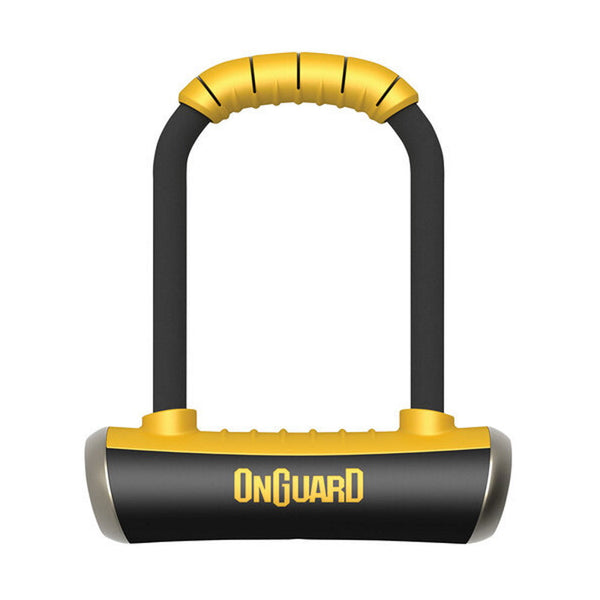
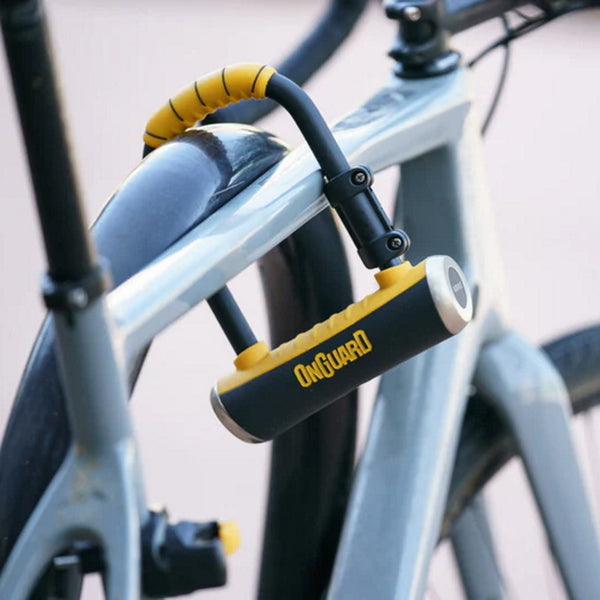
What else should you consider?
The Locking Mechanism – Key or Combo
When choosing between a combination lock and a key locking mechanism, each option offers distinct advantages based on your preferences and needs.
Combination locks provide convenience and peace of mind for those who worry about losing or forgetting keys. With a customizable code, you can lock and unlock your bike without needing to carry extra items. This makes combination locks a great option for riders who prefer simplicity, especially for quick stops or casual use. However, it's important to choose a high-quality combination lock, as some lower-end options can be easier to tamper with.
Key locks on the other hand offer a higher level of security, making them an excellent choice for long-term parking or higher-value bikes. Key locking mechanisms are typically more difficult for thieves to manipulate compared to combination systems, especially with advanced key designs that prevent picking. While the downside is the potential to lose or misplace your key, some locks come with multiple copies or key replacement services to ease this concern.
Ultimately, combination locks are ideal for those who prioritize convenience and don’t want to carry keys, while key locks are better suited for riders who need enhanced security and don’t mind keeping track of a key.
So, which lock is best for you?
When choosing a bike lock, the right option depends on your specific needs and the level of security required. Cable locks are great for quick stops or casual riders, offering lightweight portability and ease of use, though they provide less security than other options. For commuters who need a balance between security and convenience, folding locks are compact, easy to transport, and offer moderate protection. If you're parking in high-risk theft areas or leaving your bike in one spot for extended periods, a chain lock is the most secure option, though it's heavier and less portable. For the highest level of security, particularly for long-term parking or valuable bikes, U-Locks (D-Locks) are tough to beat. They’re highly resistant to theft while still being manageable enough for regular use, making them ideal for those who prioritize maximum protection.

